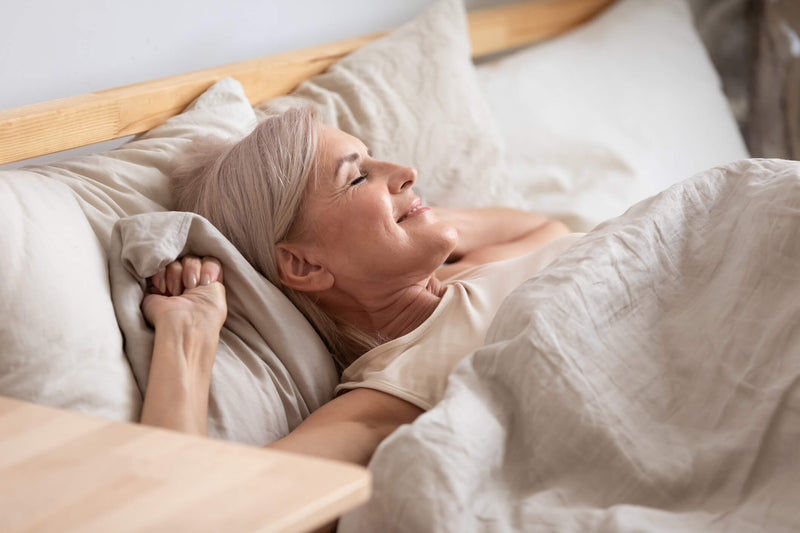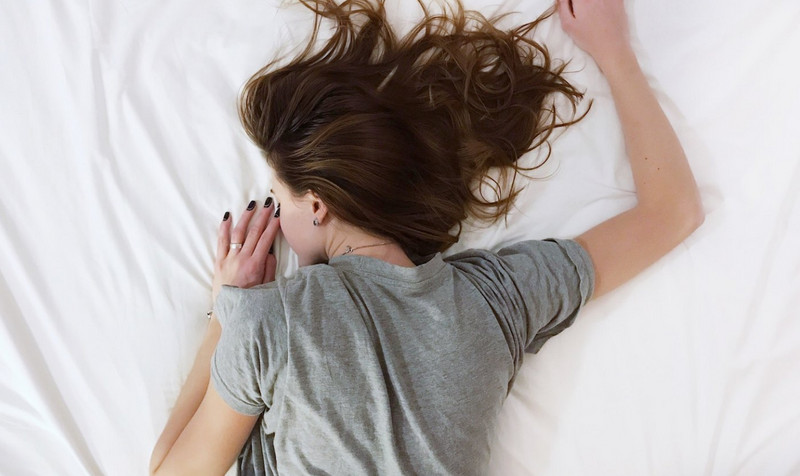Perimenopause and menopause are natural stages in every woman's life. Although the two share many classic symptoms, some key differences can help you tell them apart.
In this blog, we'll talk about perimenopause vs. menopause, as well as give you some tips to ease your most troublesome symptoms.
What is Perimenopause?
Perimenopause, or "around menopause," happens as your body transitions into menopause. Perimenopause is marked by irregular rises and falls in estrogen, the female sex hormone produced by the ovaries.
When Does Perimenopause Occur?
Perimenopause often begins in your 40s, but some women notice changes in their mid-30s.
How Long Does Perimenopause Last?
Hormonal changes marked by perimenopause can last anywhere from a few months to four years, and it ends one year after your final menstrual period.
What Are the Symptoms of Perimenopause?
Perimenopausal symptoms include:
- Irregular periods
- Weight gain
- Brain fog
- Worsening PMS
- Decreased fertility
- New physical symptoms
Irregular Periods
As estrogen levels begin to rise and fall, ovulation becomes more unpredictable. The length of time between periods may become longer or shorter, your flow will change and you may miss periods.
A persistent lengthening of about seven days between periods is a sign of early perimenopause, while a persistent lengthening of 60 days or more between periods is a sign of late perimenopause.
Weight Gain

Reasons for gaining weight during perimenopause vary from woman to woman. Although weight gain is often due to hormonal changes, it can also be attributed to aging, lifestyle or genetics.
Brain Fog

"Brain fog" is a common symptom of perimenopause. About 60 percent of middle-aged women report difficulty concentrating and forgetfulness around the time they transition into menopause.
Worsening PMS
PMS (premenstrual syndrome) may worsen before periods. PMS often causes symptoms like breast tenderness, headaches and mood swings.
Decreased Fertility
As menstrual cycles become more unpredictable, you are less likely to become pregnant. However, pregnancy is still possible during perimenopause. If you wish to avoid pregnancy, use birth control until your periods have stopped for at least 12 months.
New Physical Symptoms
As estrogen levels decrease, you may become more susceptible to urinary or vaginal infections, muscle aches, heart palpitations, hair changes and vaginal dryness.
What is Menopause?
Menopause is a natural decline in reproductive hormones, resulting in the cessation of menstrual periods. When you haven’t menstruated in 12 consecutive months and can no longer become pregnant, you are in menopause.
When Does Menopause Occur?
Women can enter menopause anywhere between age 40 and 58, the average age being 51. Conditions that impact ovarian health, like cancer treatment, can cause premature menopause. It can also be induced surgically through a hysterectomy.
How Long Does Menopause Last?
Menopause symptoms continue for about three years. However, a small number of women experience symptoms for up to ten years following their last period.
What Are The Symptoms of Menopause?
A drop in estrogen and progesterone levels is the main culprit for the worst menopausal symptoms, including:
- Hot flashes and night sweats
- Depression and anxiety
- Insomnia and fatigue
- Vaginal dryness
- Dry skin
- Frequent urination
Hot Flashes and Night Sweats
An estimated 80 percent of women experience symptoms such as hot flashes and night sweats during menopause.
Menopause is natural – but it shouldn’t get in the way of your comfort. Softies' Wellness Fabric sleepwear will keep you cool, dry and comfortable all night long. Our unique combination of synthetic water-repelling and natural water-absorbing fibers pulls moisture away from your skin and out of the fabric, guaranteeing a snug and sweat-free sleep.
Depression and Anxiety
Menopause can affect your mental health. It's normal to feel sad or anxious every so often – but if these feelings persist during menopause, you may be experiencing depression or anxiety. Hormonal variation can be responsible for changes in mental well-being, but it's still essential to get the support you need as you navigate these feelings.
Insomnia and Fatigue

Insomnia and fatigue – the not-so dynamic duo – often go hand in hand throughout menopause.
When insomnia prevents you from getting enough quality sleep, the resulting fatigue can add to irritability. Taking steps to ensure you’re getting enough rest will improve your mood and overall vitality.
Vaginal Dryness
Decreased estrogen levels can lead to vaginal dryness, as estrogen is largely responsible for vaginal lubrication.
Dry Skin
Dry skin commonly occurs during menopause. Make sure you stay hydrated and use moisturizers regularly to keep skin dryness at bay.
Frequent Urination
Developing an overactive bladder (OAB) is common during menopause. OAB includes frequent urination, sudden urges to urinate, and difficulty holding urine.

Tips on Dealing With Perimenopause and Menopause
Exercise Regularly
Because weight gain is common during menopause, it's essential to maintain a consistent exercise routine to avoid the risk of heart disease and diabetes. Regular exercise is also great for improved energy and metabolism, joint health, decreased stress and better sleep.
Get More Rest
Getting enough rest is crucial in every stage of life – but it's imperative as your hormone levels wax and wane. Making sure that you are sleeping well and avoiding excessive physical activity can help ease symptoms of perimenopause and menopause.
Limit Alcohol and Caffeine
Alcohol and caffeine can trigger symptoms of menopause, like hot flashes, night sweats and mood swings. So while it's not necessary to cut them out completely, it's important to note how they make you feel.
Consider Hormone Replacement Therapy (HRT)
Hormone replacement therapy (HRT) can help relieve symptoms of menopause. There are two primary types of hormone therapy, and both can be administered orally, topically or vaginally.
Estrogen therapy works best for women who have symptoms of menopause after a hysterectomy. Progesterone therapy, which combines doses of estrogen and progestin (a synthetic progestogen), is meant for women who still have their uterus.
Take Supplements

Because bone strength begins to waver with menopause, it's essential to be eating foods rich in calcium and vitamin D. These are also available to take as supplements.
You can also try taking black cohosh and evening primrose oil as supplements to help treat hot flashes, vaginal dryness, sleep disturbances, anxiety and irritability.
Other Prescription Treatments
Other prescription treatments, like vaginal creams and antidepressants, can also be used to ease symptoms brought on by perimenopause and menopause.
Wear Moisture-Wicking Sleepwear

To help you better manage night sweats and hot flashes, turn to Softies’ moisture-wicking sleepwear.
Softies’ sleepwear is designed to you cool around the clock for ultimate comfort. In addition, our Wellness Fabric collection includes patented drirelease® technology that keeps you fresh and sweat-free so you can conquer those hot flashes and night sweats.
Experience the Softies difference and try one of our moisture-wicking pajamas today!
Not Sure? Check With Your Doctor
Perimenopause and menopause are natural processes. Consult your doctor if you're not sure if you're in perimenopause or menopause or have other symptoms.
Although many symptoms can mimic perimenopause and menopause, cessation of periods can have other origins, like endometriosis.
Note: The information in this article is not intended or implied to be a substitute for professional medical advice, diagnosis or treatment. Please talk to your doctor for any questions regarding your health or a medical condition.





